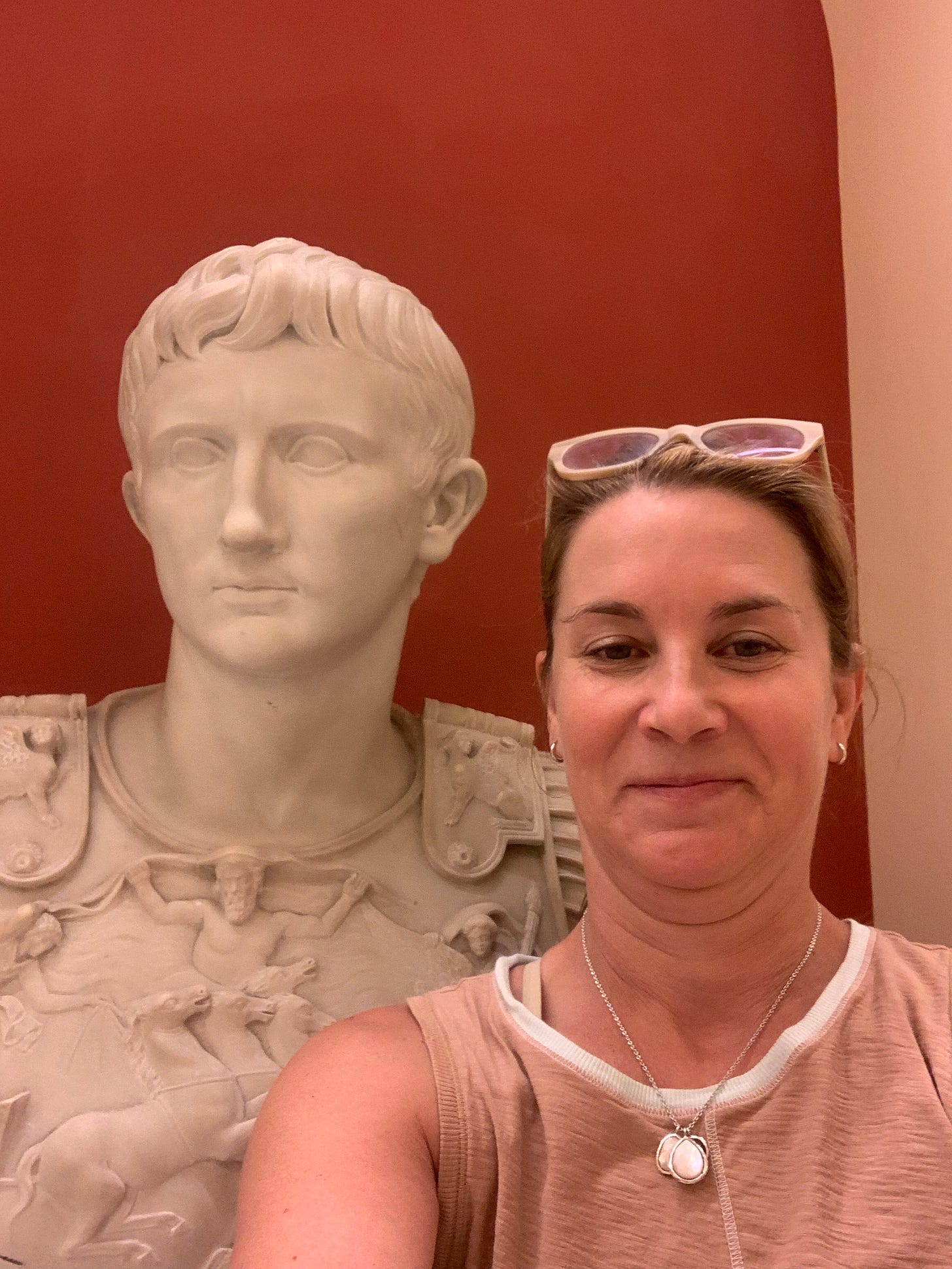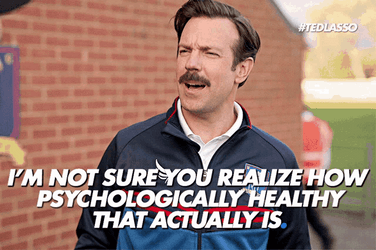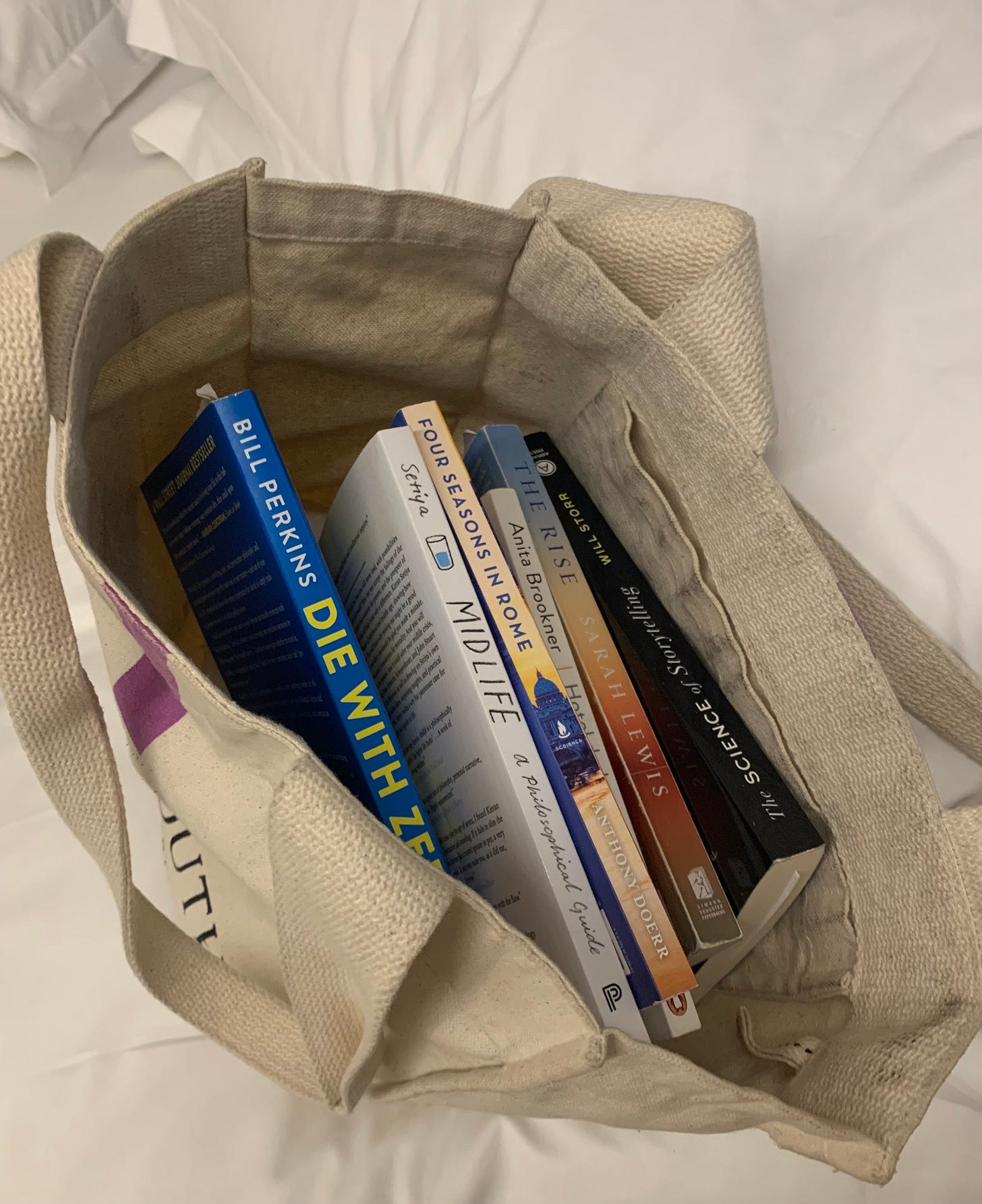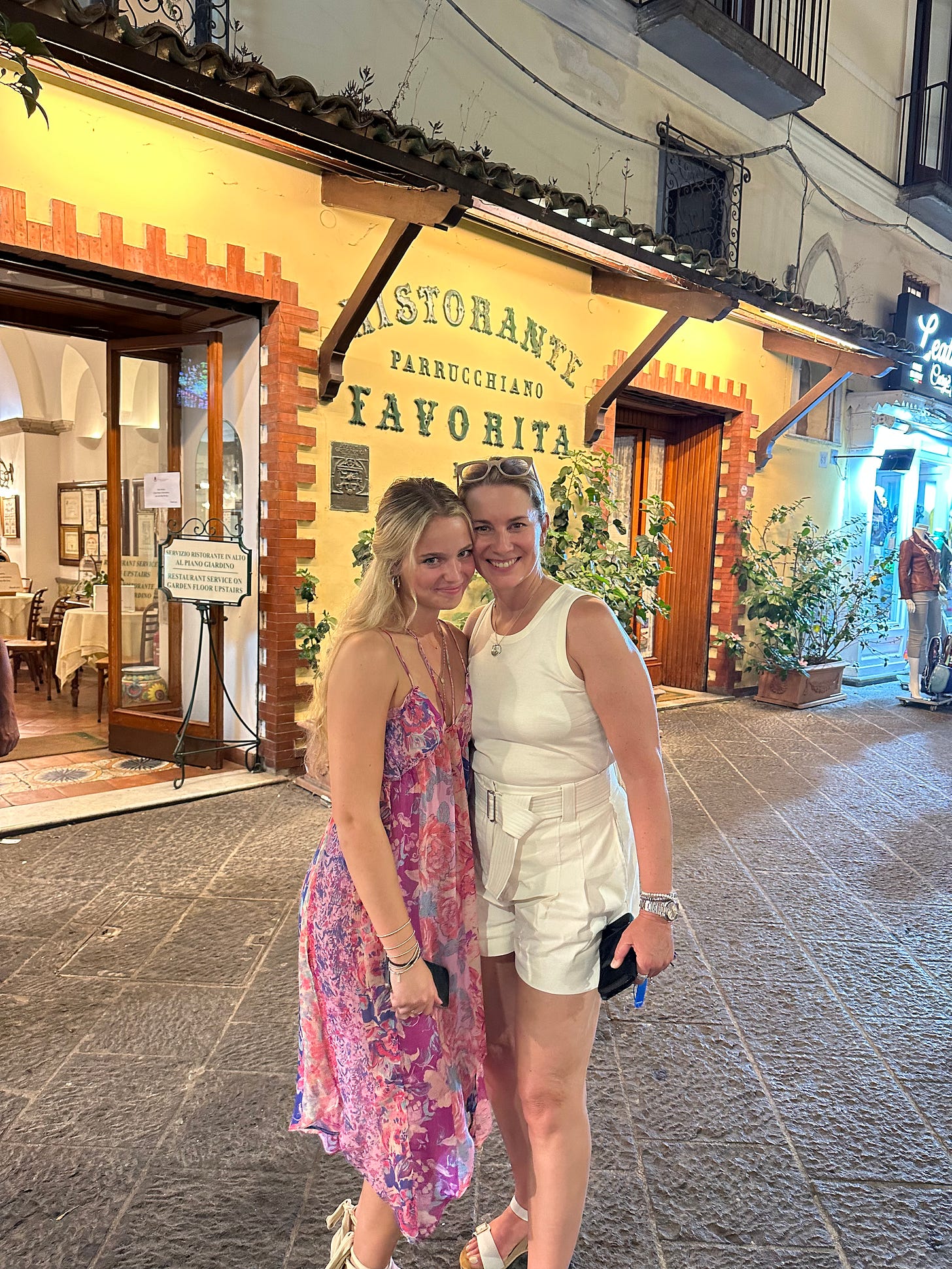#38: Reclaiming loss from the grip of avoidance.
Evolving our relationships with those we have lost (part 2).
Dear reader, we’re back into the deep end of the grief pool this week. But the water feels fine, warm like the seaside of Sorrento, Italy where I’m writing you from! Pull out your floaties, grab your sunhat, whatever you need to prepare yourself, and come join me in this conversation. It can be daunting to watch the waves, but once you’re in you’ll realize it’s actually kind of nice…
Free & paid subscribers receive the exact same weekly content in their inboxes every Saturday morning. (The newsletter; vulnerable, personal, embarrassing stories; book recommendations; whatever gifs have made me giggle.)
Considering upgrading to help myself and my editor Leona dedicate more time to The Luminist and support our current non-profit of choice: Experience Camps for grieving kids.
Last week, we talked about moving on.
We talked about how, no matter what has ended, it’s crucial to our wellbeing that we allow ourselves to find and embrace forward momentum. Otherwise, we accidentally sacrifice our future for a past we can never return to.
But we also talked about how sometimes you really don’t want to move on, or aren’t sure how. So we searched for a middle ground.
And we ended up talking about breathing life back into the relationships that are now one-sided, due to death or other kinds of separations. Because as long as we are alive and changing, our relationships will be evolving with us. Like picking up a favorite book again, we can discover something new no matter how many times we go back.
This week, while hauling around an aspirational and absurd tote of books on my two-week vacation, this metaphor really grabbed me.
Refusing to move on is like refusing to read another book ever again because the last one was so good. It’s like assuming another book could never “take the place” of the last, so we don’t even want to try. Then there’s the opposite reaction too: throwing out a book because we loved it so much and now that it’s over, we can’t stand it. We feel the end of it like a wound. We want to go backwards… but since we can’t do that, we’ll settle for never thinking about it again.
Yes, this is hyperbole and simplification, but it’s not so far from the common strategies we goofy humans employ when faced with loss.
Both rumination (being afraid to “move on” to a new book) and avoidance (throwing the book out for good) miss the mark. They stall out our lives rather than making them fuller. It’s almost like a part of us dies, thinking it’s a noble self-sacrifice to allow the rest of ourselves to live… but we want to be fully alive!
I think part of the problem is we don’t realize that death and everything that comes with it (pain, illness, weakness, loss, failure) is part of life. So how do we weave death and life into each other? How do we shift our perspective to see them not as opposites but partners? As much as we don’t like to think about it, death creates nourishment for life after all.

In the last post, we brought new life to what had been lost in order to grease the way through rumination into forward momentum.
What if we injected a little loss into our daily lives to move past the stalemate of avoidance?
People are surprised how much the kids and I talk about Mike.
In the beginning, it was to make sure the kids didn’t feel like they had to hide their grief. But now it’s just the way we live. Mike and Mike’s death are part of the fabric of our lives, our stories, our hero’s journeys. As Brené Brown points out, “Owning our story can be hard but not nearly as difficult as spending our lives running from it.”
Weaving acknowledgment of loss into life hasn’t just saved us from the (well-documented) negative impacts of avoidance. It’s added something too. Being reminded of love is another way of interpreting being reminded of loss.
So the kids and I have integrated Mike, his death, and death in general by:
1 - Talking about him daily. Talking about his loss, yes, but more often talking about something funny he said, a family catchphrase he originated, what he would think about Kendall’s choice of boyfriend, how Connor’s a capella singing reminds us of his booming voice.
2 - Tucking keepsakes from him around the house, in places of honor but also just regular places. We all have some of his ashes by our beds. Notes he left us live on the cork board. His books mingle about so you never know when you’ll pick one up to find a message from him in the page margin.
3 - Letting his death change the course of our lives. The kids stepped up and opened up and blew all of our socks off in the process. I melted out of my “Sue the Hard Charger” armor to discover the compassionate, authentic, connection-magnet leader underneath. The Luminist was born.
Mike had many phenomenal things to offer in life. But I’d say in death, he’s become wiser. That’s him teaching us all how to:
Express yourself to your loved ones (while you are alive if you can!)
Leave love as your legacy.
Some of these things he did while he was alive… some things he wanted to do but never got around to. Which will happen to the best of us. Regrets are part of living and dying. But keeping death close will remind you what really matters, so you don’t go out with too many.
We get more out of life when we get more comfortable with loss.
“Because every tender, delicious, electrifying aspect of the human experience comes with something crappy. Love means you have something to lose. Success implies the countless failures that lead up to it. Achieving your greatest, life-altering dream requires leaving many things behind.” (Sue Deagle, post #30.)
We have children for Pete’s sake, there’s nothing more terrifying and exhilarating than that!
Speaking of that and the World Cup — Go USWNT! — there’s a really sweet part at the end of Ted Lasso (no spoilers, I promise). Ted is talking to his mom about his son. In a moment of vulnerability he admits, “I’m scared sometimes to get close to that little boy… because I know he’s going to leave.”
Everything in our life one day will end, whether it goes out with our own light or before it. There’s a way of looking at that fact that leads to apathy. If nothing lasts, nothing matters. It’s not worth caring about and hurting over.
But I like another interpretation: if nothing matters, then everything is what I make of it. And I want to make A LOT of it. I want to go out feeling like a mashed grape — having given all I’ve got to the absurd process of distillation, fermentation, and finally, a really good wine… aka, a really good time! I want to feel like I’ve held nothing back, faced my fears, summited the peak, scraped the clouds, walked back down to hug my family and admit that it was cool but coming home was better.
I don’t want nothing, I want it all.
All of those who are no longer on this earth are reaching across time and space to help us live our best lives.
With the love they gave us, the wisdom they left behind, their sugar cookie recipe (a Grandma Tillie special!), even their regrets — the things they would have done differently. As Walt Whitman said, “We contain multitudes.” We are both ourselves and every person who we have encountered, every person we have loved.
In other words, there is more to death than loss. There is perspective. There is priority. There is shared purpose. There is love. There is life. There are new fruits waiting to ripen and nourish us, if we stop being so convinced that, because the seed is growing from the fertile soil of death, they will poison us. Avoidance and rumination leave us with the least pleasant parts of loss. We deserve better.
So let’s plant the seeds of integration and water the soil with the knowing that “things will be great again.”
Case in point, I’m in Italy with my daughter, celebrating her graduation and dreaming of all the things she will achieve next. While we watch the sunset across the Mediterranean, we don’t have to skirt around the topic of Mike. He’s not some unspoken rock in our shoe. Rather, he’s with us like soil under our roots — supporting, nourishing, anchoring everything that we do.
With death by our side,
If you resonated with this post and want more, check out these:
Post #29: Learning from laughter to trust my tears. When we feel, we heal.
Post #30: The beautiful, the painful, the dazzling. How I learned from loss to be unafraid of life.
Post #33: It’s okay to be afraid. Allowing fear to live, but not to rule.
Post #34: Acceptance is just the beginning. The powerful first step to rebuilding after losing so much.
Post #37: Moving on isn’t leaving behind. Evolving our relationships with those we have lost (part 1).










Another beautiful offering, thank you.
Avoidance is such a big part of grief. It’s taken me a while (aka 10+ years) but I’m finally starting to venture away from it. As you said, there’s so much more to death than loss. Once I stopped running away from it is when i finally began to discover some of these other things you mentioned it makes available.
Enjoy Italy and eat all the pizza, pasta, and gelato ✨
A lot to unpack in this one. But Kenny P “no ragrets; not even one letter.” Was a strong pull.